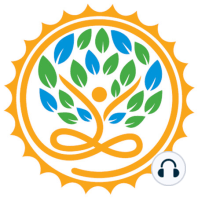58 min listen

Coronary Artery Calcium (CAC): A Direct Measure of Cardiovascular Disease Risk
Coronary Artery Calcium (CAC): A Direct Measure of Cardiovascular Disease Risk
ratings:
Length:
48 minutes
Released:
Aug 20, 2019
Format:
Podcast episode
Description
Engineer, podcaster, author and speaker Ivor Cummins is back on the podcast today to talk about a topic that could save your life or the life of someone you love. Coronary Artery Calcium (CAC), a direct measure of arterial calcification obtained with a CT scan, is gaining respect as the best predictor of cardiovascular events. Indirect risk factors - like LDL cholesterol, though beloved by the medical establishment, pale in comparison. Today Ivor talks about what really causes cardiovascular disease and how best to assess your risk. He discusses the science that supports the use of CAC to identify those most at risk - and by doing so, they can take steps to slow, stop or even reverse disease progression. Further validating Ivor’s work, the American College of Cardiology and the American Heart Association are now formally recommending the CAC for middle-risk patients. As if that wasn’t enough, getting a CAC scan is affordable and probably available near you. Here’s the outline of this interview with Ivor Cummins: [00:00:03] Real Food Rocks Festival. [00:01:33] Prevalence and severity of cardiovascular disease (CVD). [00:02:19] Decline in CVD between 70s and 90s: Roger, Véronique L., et al. "Time trends in the prevalence of atherosclerosis: a population-based autopsy study." The American journal of medicine110.4 (2001): 267-273. Rates of CVD from 1990-2013: O’Rourke, Kevin, et al. "Cardiovascular disease worldwide, 1990-2013." Jama 314.18 (2015): 1905-1905. [00:02:39] Causes of CVD. [00:05:27] Glycocalyx; Study: Noble, M. I. M., A. J. Drake-Holland, and H. Vink. "Hypothesis: arterial glycocalyx dysfunction is the first step in the atherothrombotic process." QJM: An International Journal of Medicine 101.7 (2008): 513-518. [00:07:07] Glucose spikes causing damage to glycocalyx; Study: Nieuwdorp, Max, et al. "Loss of endothelial glycocalyx during acute hyperglycemia coincides with endothelial dysfunction and coagulation activation in vivo." Diabetes 55.2 (2006): 480-486. [00:07:49] Glycolyx thinning at arterial branch points become regions of atherogenic risk; Study: Gouverneur, Mirella, et al. "Vasculoprotective properties of the endothelial glycocalyx: effects of fluid shear stress." Journal of internal medicine259.4 (2006): 393-400. [00:08:11] Potential autoimmune component to CVD. [00:08:18] Gabor Erdosi, admin on the Lower Insulin Facebook group. [00:09:59] Know your risk. Coronary Artery Calcium (CAC) scan. [00:10:52] Widowmaker movie. [00:11:24] David Bobbett; Irish Heart Disease Awareness (IHDA). [00:12:07] Rivers Hospital in UK. [00:15:15] An 80-year old with a low score is 20x less likely to have a cardiac event in the next 10 yrs than a 50 yr old with a high score. Study: Tota-Maharaj, Rajesh, et al. "Association of coronary artery calcium and coronary heart disease events in young and elderly participants in the multi-ethnic study of atherosclerosis: a secondary analysis of a prospective, population-based cohort." Mayo Clinic Proceedings. Vol. 89. No. 10. Elsevier, 2014. [00:15:52] 2018 ACC/AHA Multisociety Guideline on the Management of Blood Cholesterol. [00:17:34] Interpreting and understanding CAC results. [00:20:03] Value of understanding your cholesterol levels. [00:22:17] COURAGE trial: Boden, William E., et al. "Optimal medical therapy with or without PCI for stable coronary disease." New England journal of medicine 356.15 (2007): 1503-1516. ORBITA trial: Al-Lamee, Rasha, et al. "Percutaneous coronary intervention in stable angina (ORBITA): a double-blind, randomised controlled trial." The Lancet391.10115 (2018): 31-40. [00:25:47] Why isn't the medical establishment using the CAC scan to assess for CVD? [00:26:05] CAC threatens to interfere with cath lab income, gets shut down. [00:28:39] Getting your score back to zero. [00:28:44] Feature documentary: Heart of the Matter. [00:29:48] Heinz Nixdorf Recall study: Mahabadi, Amir A., et al. "The Heinz Nixdorf Recall study and its potential impact on the adop
Released:
Aug 20, 2019
Format:
Podcast episode
Titles in the series (100)
Ketosis expert Jimmy Moore by Nourish Balance Thrive